Top 10 Foods Highest in Omega 3 Fatty Acids
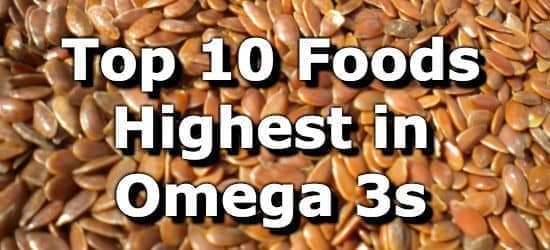
Omega-3 fatty acids are a type of polyunsaturated fat associated with various health benefits including reducing the risk of heart disease (1,2), reducing the risk and severity of dementia (3), alleviating inflammation in arthritis (4), and reduction of triglyceride levels. (5) Omega 3s are 'essential fats' as they cannot be made in the body, and must be obtained via diet.
The 3 principal omega-3 fatty acids are:
- Alpha Linolenic Acids (ALAs) - found in plant foods
- Eicosapentaenoic Acid (EPA) - found in fish and seafood
- Docosahexaenoic Acid (DHA) - found in fish and seafood
Note: Most health benefits of omega 3s are attributed to DHA and EPA forms of omega 3s. This is partly due to the high concentration of DHA in the brain, and also because ALAs have not been extensively studied. (6) The body can convert ALA fats from plant foods, however, the efficiency of conversion varies from person to person, with average estimates suggesting that 6% of ALAs get converted to EPA, while 3.8% get converted to DHA. (7) ALAs are not totally without benefits, and more studies need to be conducted to fully understand the role of ALAs. (8,9)
High omega-3 foods include flaxseeds, chia seeds, fish, walnuts, tofu, shellfish, canola oil, navy beans, brussels sprouts, and avocados. The adequate intake (AI) for ALA omega 3 fats is 1.6g per day (10). No adequate intake target for EPA and DHAs exists, so 1.6g is presented in this article to make it easier to compare sources of omega 3s.
Below are the top 10 foods high in omega 3 fatty acids. For more, see the list of foods with a high omega 3 to omega 6 ratio, and the complete list of over 200 foods high in omega 3s.
- Introduction
- List of High Omega 3 Foods
- 100g Serving
- 200 Calorie Serving
- Printable
- Fats and Oils Rich in Omega 3s (Ranked per tablespoon of oil)
- How much Omega 3 fats do you need every day?
- Health Benefits of Omega 3s
- Omega 3 for Vegans and Vegetarians
- Is Algae a Good Source of Omega 3s?
- Does Olive Oil Provide Omega 3 Fats?
- Are Eggs High in Omega 3s?
- Lists By Food Group
- References
List of High Omega 3 Foods
-
4g Omega 3 per 1g Omega 6
 1. Flax Seeds + Add
1. Flax Seeds + Add
Omega 3s
per OzOmega 3s
per 100gOmega 3s
per 200 Calories6.48g
(405% AI)22.81g
(1426% AI)8.54g
(534% AI)See all nuts and seeds high in omega 3s.
-
3g Omega 3 per 1g Omega 6
 2. Chia Seeds + Add
2. Chia Seeds + Add
Omega 3s
per oz(~2 Tblsp)Omega 3s
per 100gOmega 3s
per 200 Calories5.06g
(316% AI)17.83g
(1114% AI)7.34g
(459% AI) -
3g Omega 3 per 1g Omega 6
 3. Fish (Salmon) + Add
3. Fish (Salmon) + Add
Omega 3s
per 6oz FilletOmega 3s
per 100gOmega 3s
per 200 Calories3.94g
(246% AI)2.32g
(145% AI)2.25g
(141% AI)More Fatty Fish High in Omega 3s
- 240% AI in a 5oz herring fillet
- 195% AI in a 4oz Atlantic mackerel fillet
- 182% AI in a 6oz tuna fillet
- 109% AI in a 5oz trout fillet
- 103% AI in 1 cup of canned sardines
- 84% AI in 3oz of canned salmon
- 57% AI in 3oz of swordfish
- 315% AI in a tblsp of salmon oil
- 168% AI in a tblsp of cod liver oil
Note: Farmed salmon is higher in fat and omega-3s than wild salmon. See the nutrition comparison for more info.
See the complete list of fish high in omega 3s.
-
1g Omega 3 per 4g Omega 6
 4. Walnuts + Add
4. Walnuts + Add
Omega 3s
per OzOmega 3s
per 100gOmega 3s
per 200 Calories2.58g
(161% AI)9.08g
(568% AI)2.78g
(174% AI)More Nuts High in Omega 3s
- 18% AI in 1oz of pecans
- 14% AI in 1oz of pine nuts
- 5% AI in 1oz of pistachios
See all nuts and seeds high in omega 3s.
-
1g Omega 3 per 7g Omega 6
 5. Firm Tofu + Add
5. Firm Tofu + Add
Omega 3s
per CupOmega 3s
per 100gOmega 3s
per 200 Calories1.47g
(92% AI)0.58g
(36% AI)0.81g
(51% AI)Other Soy Products High in Omega 3s
- 35% AI in 1 cup of edamame (boiled green soybeans)
- 30% AI in 1 cup of cooked soybean sprouts
-
1g Omega 3 per 2g Omega 6
 6. Canola Oil + Add
6. Canola Oil + Add
Omega 3s
per TblspOmega 3s
per 100gOmega 3s
per 200 Calories1.28g
(80% AI)9.14g
(571% AI)2.07g
(129% AI)Other Vegetable Oils High in Omega 3s
- 58% AI in 1 tblsp of soybean oil
- 52% AI in 1 tblsp of mustard oil
- 14% AI in 1 tblsp of rice bran oil
See the table of fats high in omega 3s, or use the nutrient ranking tool to see a ranking of all oils high in omega 3s.
-
22g Omega 3 per 1g Omega 6
 7. Shellfish (Oysters) + Add
7. Shellfish (Oysters) + Add
Omega 3s
per 3oz ServingOmega 3s
per 100gOmega 3s
per 200 Calories1.2g
(75% AI)1.42g
(89% AI)1.74g
(109% AI)More Seafood High in Omega 3s
- 48% AI in 3oz of mussels
- 22% AI in 3oz of crab
- 10% AI in 3oz of clams
See the complete list of fish and seafood high in omega 3s.
-
1g Omega 3 per 1g Omega 6
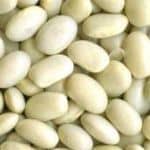 8. Navy (Haricot) Beans + Add
8. Navy (Haricot) Beans + Add
Omega 3s
per CupOmega 3s
per 100gOmega 3s
per 200 Calories0.32g
(20% AI)0.18g
(11% AI)0.25g
(16% AI)More Beans High in Omega 3s
- 19% AI in 1 cup of kidney beans
- 15% AI in 1 cup of pinto beans
- 11 AI in 1 cup of black beans
-
2g Omega 3 per 1g Omega 6
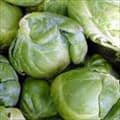 9. Brussels Sprouts + Add
9. Brussels Sprouts + Add
Omega 3s
per Cup CookedOmega 3s
per 100gOmega 3s
per 200 Calories0.27g
(17% AI)0.17g
(11% AI)0.96g
(60% AI)More Vegetables High in Omega 3s
- 14% AI in 1 cup of Chinese broccoli
- 12% AI in 1 cup of winter squash
- 12% AI in 1 cup of broccoli
- 11% AI in 1 cup of zucchini
- 10% AI in 1 cup of spinach
See all vegetables high in omega 3s.
-
1g Omega 3 per 13g Omega 6
10. Avocados + Add
Omega 3s
per AvocadoOmega 3s
per 100gOmega 3s
per 200 Calories0.25g
(16% AI)0.13g
(8% AI)0.16g
(10% AI)More Fruits High in Omega 3s
- 12% AI in 1 cup of guavas
- 10% AI in 1 cup of raspberries
- 8% AI in 1 cup of blackberries
- 7% AI in 1 cup of strawberries
- 5% AI in 1 cup of blueberries
- 5% AI in 1 cup of mangoes
See all fruits high in omega 3s.
Printable One Page Sheet
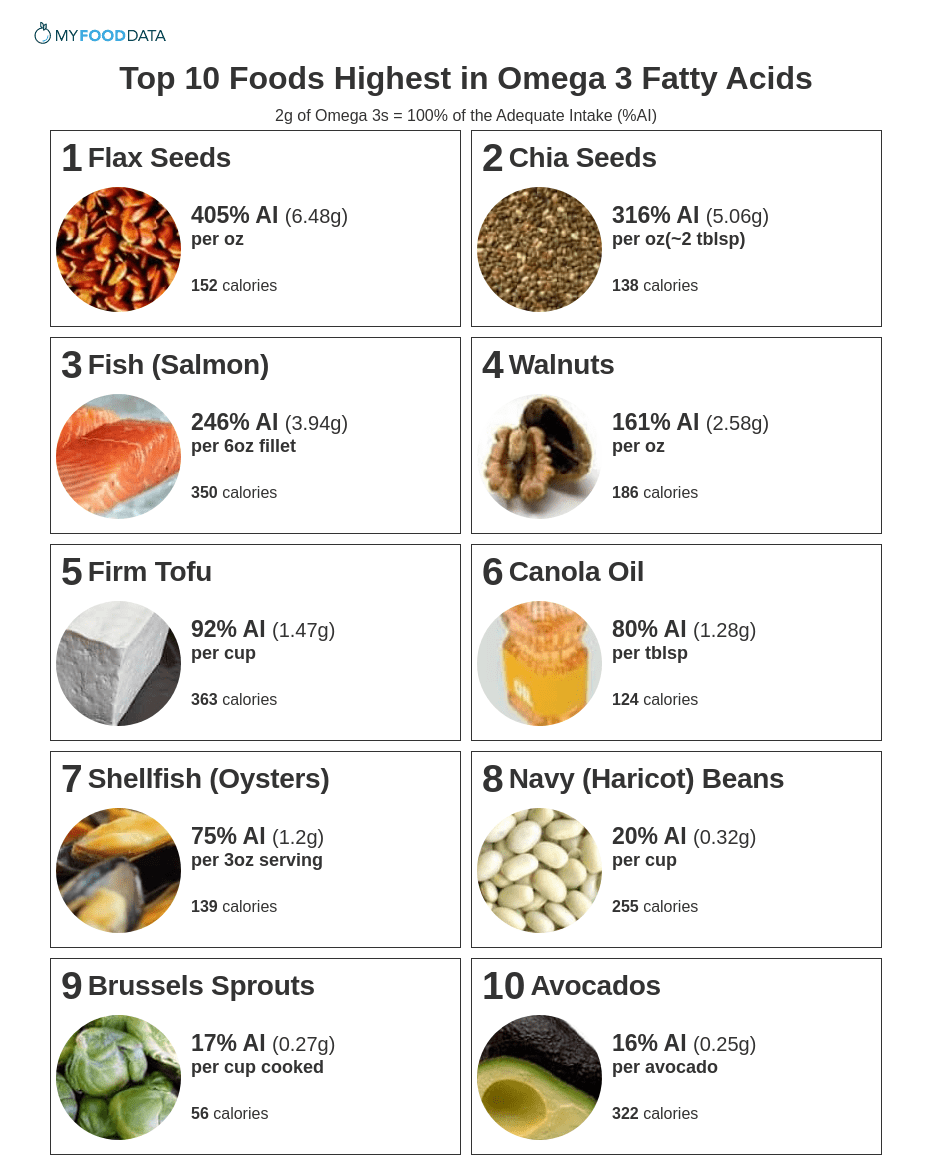
Foods High in Omega 3s by Nutrient Density (100 Gram Serving Size)
This ranking lets you know which foods have the most Omega 3s per gram of food.
| Food | Serving | Omega 3s |
|---|---|---|
| 1. Flaxseed Oil + | 100 grams | 3341% AI (53.45g) |
| 2. Flax Seeds + | 100 grams | 1426% AI (22.81g) |
| 3. Chia Seeds + | 100 grams | 1114% AI (17.83g) |
| 4. Walnuts + | 100 grams | 568% AI (9.08g) |
| 5. Raw Atlantic Mackerel (Sashimi) + | 100 grams | 157% AI (2.51g) |
| 6. Fish Roe (Mixed Species) + | 100 grams | 152% AI (2.43g) |
| 7. Farmed Atlantic Salmon + | 100 grams | 145% AI (2.32g) |
| 8. Cooked Whitefish + | 100 grams | 114% AI (1.82g) |
| 9. Bluefin Tuna (Cooked) + | 100 grams | 104% AI (1.66g) |
| 10. Cooked Pacific Oysters + | 100 grams | 89% AI (1.42g) |
Foods High in Omega 3s by Calorie Density (200 Calorie Serving Size)
This ranking lets you know which foods have the most Omega 3s per calorie of food. It is ideal for those who want to maximize their Omega 3s intake per calorie of food, reducing their overall calorie intake to lose weight.
| Food | Serving | Omega 3s |
|---|---|---|
| 1. Flaxseed Oil | 200 calories | 756% AI (12.09g) |
| 2. Flax Seeds | 200 calories | 534% AI (8.54g) |
| 3. Chia Seeds | 200 calories | 459% AI (7.34g) |
| 4. Fish Roe | 200 calories | 212% AI (3.4g) |
| 5. Walnuts | 200 calories | 174% AI (2.78g) |
| 6. Raw Atlantic Mackerel (Sashimi) | 200 calories | 153% AI (2.45g) |
| 7. Wild Salmon | 200 calories | 152% AI (2.43g) |
| 8. Chinese Broccoli (Gai Lan) | 200 calories | 147% AI (2.35g) |
| 9. Farmed Salmon | 200 calories | 141% AI (2.25g) |
| 10. Kale | 200 calories | 135% AI (2.16g) |
Fats and Oils Rich in Omega 3s (Ranked per tablespoon of oil)
| Food | Serving | Omega 3s |
|---|---|---|
| 1. Flaxseed Oil + | per tblsp | 454% AI (7.27g) |
| 2. Salmon Oil + | per tblsp | 291% AI (4.66g) |
| 3. Menhaden Oil + | per tblsp | 226% AI (3.62g) |
| 4. Sardine Oil + | per tblsp | 194% AI (3.1g) |
| 5. Herring Oil + | per tblsp | 94% AI (1.51g) |
| 6. Walnut Oil + | per tblsp | 88% AI (1.41g) |
| 7. Canola Oil + | per tblsp | 80% AI (1.28g) |
| 8. Canola Oil + | per tblsp | 80% AI (1.28g) |
| 9. Soybean Oil + | per tblsp | 58% AI (0.92g) |
| 10. Corn and Canola Oil + | per tblsp | 51% AI (0.81g) |
Foods Highest in Omega 3s By Calorie Density (per 200 calorie serving)
Below are the daily adequate intakes (%AI) established for omega 3 foods. Adequate intakes are used when there is not enough data to formulate a recommended dietary allowance (RDA). The adequate intake of omega 3 fats ranges between 0.5g - 1.6g per day for most people. (10)
| Life Stage | RDA |
|---|---|
| Infants | |
| 0-6 months old | 0.5g |
| 7-12 months old | 0.5g |
| Children | |
| 1-3 years old | 0.7g |
| 4-8 years old | 0.9g |
| Males | |
| 9-13 years old | 1.2g |
| 14+ years old | 1.6g |
| Females | |
| 9-13 years old | 1g |
| 14+ years old | 1.1g |
| Pregnancy | |
| 14-50 years old | 1.4g |
| Lactation | |
| 14-50 years old | 1.3g |
Health Benefits of Omega 3s
- Reduced risk of cardiovascular disease - Studies suggest that consumption of 1 gram of omega 3s per day helps reduce the risk of all-cause mortality in patients with known coronary heart disease. (1) This is especially true of the EPA (eicosapentaenoic fatty acid) and DHA (docosahexaenoic acid) forms of omega 3s.(1,2)
- Reduced severity of dementia and mental decline - Omega 3 fatty acids may reduce the risk of cognitive decline, but not Alzheimer's. (3) The association is stronger for people over 55 years old. Linking diet to health is difficult, however, and studies do not always show benefits for mental health. (12) With that being said, there is very little harm in consuming a 1g supplement of omega 3 or eating more omega 3 foods.
- Alleviation of arthritis and inflammation - Several studies associate omega 3 consumption with alleviation and modulation of pain from swollen arthritic joints. (4) One double-blind randomized trial gave participants 2 doses (1.8g and 2.1g) of omega 3 in the form of EPA and DHA. Patients who consumed the omega3s vs placebo showed improvement in arthritis based on a physician's evaluation and were also able to reduce the amount of pain medication they consume. (12)
- Reduced triglyceride levels - As little as 1 gram per day of fish oil ( 0.21 g EPA and 0.12 g DHA) reduce triglyceride levels in people with high blood cholesterol and triglycerides. (5) Higher doses of omega 3s (EPA and DHA) also help reduce triglyceride levels with little ill effect on total blood cholesterol. For people with blood triglycerides over 500mg/dl a prescription of omega 3 supplements is approved by the US Food and Drug Administration as an effective treatment. (13)
- Improvement of ADHD in children - At least one double-blind dose-response study found that omega 3 supplements in addition to a drug of choice (methylphenidate) showed significant clinical improvement over those who did not take omega 3 supplements. Children were given 100mg - 400mg of omega 3 depending on weight. More studies need to be done to confirm this finding. (14)
- Enhanced Sleep - Omega 3 consumption is associated with better sleep. In one study participants were either given salmon 3 times a week or a similar serving of a food low in omega 3s like pork, chicken, or beef. The people who consumed salmon experienced lower sleep latency (fell asleep faster), maintained better heart rate variability, and self-reported better sleep quality and daily functioning. (15)
- Association with reduced anxiety and depression - Initial studies show a positive association between consuming fish and omega-3 fats reducing anxiety and depression. (16,17) Studies are still preliminary and more studies need to be conducted to provide a stronger link between omega-3s, mental health, and stress relief.
Omega 3 for Vegans and Vegetarians
Vegans and vegetarians tend to have lower levels of DHA and EPA Omega 3 fats. Both these forms of omega 3s are found mainly in fish products (18).
Vegans and vegetarians can convert ALA omega 3 fats from plants into DHA and EPA, however, the process is slow, and is aided by a good omega 3 to 6 ratio. (19)
Consumption of both ALA and EPA appear to have little effect on the DHA levels of breast milk. (19) DHA is important for brain development, (20) so consumption of DHA or DHA supplements is advised for lactating vegans. (19)
Vegans and vegetarians should consider an omega-3 supplement, such as those from algal oil. (18) Interestingly, quinoa also contains some DHA and can be a good food for vegetarians. One cup of cooked quinoa provides 0.028g (28mg) of DHA.
Is Algae and Algal Oil a Good Source of Omega 3s?
Certain types of algae and agal supplements can be a good source of omega3s, particularly for people on a plant-based (vegetarian) diet who don't eat fish and are ok with eating algae.
This study found that algal supplements are an effective way to increase levels of healthy DHAs in vegetarians. (21)
This study found that consumption of the microalgae Phaeodactylum tricornutum (PT) created a similar increase in omega 3 blood levels as those taking fish oil supplements. (22)
Does Olive Oil Provide Omega 3 Fats?
While olive oil is a heart-healthy fat it only provides 0.1g (6% AI) of omega 3s per tablespoon. This is considerably lower than the 1.28g (80% AI) of omega 3s in a tablespoon of canola oil.
Are Eggs High in Omega 3s?
Eggs that advertise high omega 3 content are typically from hens given foods high in omega 3s. These foods can include flax seeds, chia seeds, or even fish oil. In order to get DHA, and EPA from eggs, the chickens should be fed a food that also has those fats. (23)
From the Nutrient Ranking Tool
Use the ranking tool links below to select foods and create your own food list to share or print.
- Foods High in Omega 3s
- Foods Low in Omega 3s
- Vegetables High in Omega 3s
- Fruits High in Omega 3s
- Vegetarian Foods High in Omega 3s
- Nuts High in Omega 3s
- Beans High in Omega 3s
- Dairy High in Omega 3s
- Breakfast Cereals High in Omega 3s
- Fast Foods High in Omega 3s
View more nutrients with the nutrient ranking tool, or see ratios with the nutrient ratio tool.
Related
- Foods with a High Omega 3 to Omega 6 Ratio
- High Omega 6 Foods (To Limit or Avoid)
- Foods High in ALA (alpha-Linolenic acid)
- Foods High in DHA (Docosahexaenoic Acid)
- List of Foods for a Healthy Heart
- Foods to Avoid to Protect Your Heart
- Cholesterol Lowering Foods
- High Cholesterol Foods
- Foods for Better Sleep
- Foods to Stress Relief
Data Sources and References
- Covington MB. Omega-3 fatty acids and cardiovascular disease Am Fam Physician. 2004 Jul 1;70(1):133-40. 15259529
- Kapoor K, Alfaddagh A, Al Rifai M, Bhatt DL, Budoff MJ, Nasir K, Miller M, Welty FK, McEvoy JW, Dardari Z, Shapiro MD, Blumenthal RS, Tsai MY, Blaha MJ. Effect of omega-3 fatty acids on cardiovascular outcomes: A systematic review and meta-analysis J Am Heart Assoc. 2021 Jun;10(11):e021431. doi: 10.1161/JAHA.121.021431. Epub 2021 May 27. 34041918
- Kosti RI, Kasdagli MI, Kyrozis A, Orsini N, Lagiou P, Taiganidou F, Naska A. Omega-3 fatty acids and cognitive function Nutr Rev. 2022 May 9;80(6):1445-1458. doi: 10.1093/nutrit/nuab078. 34605891
- Simopoulos AP. The Effect of Omega-3 Fatty Acids on Rheumatoid Arthritis Am J Clin Nutr. 1991 Sep;54(3):438-63. doi: 10.1093/ajcn/54.3.438. 1908631
- McKenney JM, Sica D. Triglyceride-lowering effect of omega-3 LC-polyunsaturated fatty acids--a review Pharmacotherapy. 2007 May;27(5):715-28. doi: 10.1592/phco.27.5.715. 17461707
- Egert S, Somoza V, Kannenberg F, Fobker M, Krome K, Erbersdobler HF, Wahrburg U. Are all n-3 polyunsaturated fatty acids created equal? Eur J Clin Nutr. 2007 Mar;61(3):314-25. doi: 10.1038/sj.ejcn.1602523. Epub 2006 Sep 13. 16969378
- Broughton KS, Bayes J, Culver B. Can adults adequately convert alpha-linolenic acid (18:3n-3) to eicosapentaenoic acid (20:5n-3) and docosahexaenoic acid (22:6n-3)? Nutr Res. 2010 Oct;30(10):731-8. doi: 10.1016/j.nutres.2010.09.005. 21056289
- Egert S, Somoza V, Kannenberg F, Fobker M, Krome K, Erbersdobler HF, Wahrburg U. Are all n-3 polyunsaturated fatty acids created equal? Eur J Clin Nutr. 2007 Mar;61(3):314-25. doi: 10.1038/sj.ejcn.1602523. Epub 2006 Sep 13. 16969378
- Wu JH, Micha R, Imamura F, Pan A, Biggs ML, Ajaz O, Djousse L, Hu FB, Mozaffarian D. Health benefits of plant-derived α-linolenic acid Br J Nutr. 2012 Jun;107 Suppl 2(0 2):S214-27. doi: 10.1017/S0007114512001602. 22591895
- National Academies Press. Dietary Reference Intakes for Energy, Carbohydrate, Fiber, Fat, Fatty Acids, Cholesterol, Protein, and Amino Acids
- Bo Y, Zhang X, Wang Y, You J, Cui H, Zhu Y, Pang W, Liu W, Jiang Y, Lu Q. Omega-3 fatty acids and cognitive decline: a systematic review Nutrients. 2017 Jan 10;9(1):54. doi: 10.3390/nu9010054. 28075381
- Bahadori B, Uitz E, Thonhofer R, Trummer M, Pestemer-Lach I, McCarty M, Krejs GJ. The Effect of Omega-3 Fatty Acids in Patients With Active Rheumatoid Arthritis Receiving DMARDs Therapy: Double-Blind Randomized Controlled Trial JPEN J Parenter Enteral Nutr. 2010 Mar-Apr;34(2):151-5. doi: 10.1177/0148607109342130. 20375422
- McKenney JM, Sica D. Fish oil and the management of hypertriglyceridemia Pharmacotherapy. 2007 May;27(5):715-28. doi: 10.1592/phco.27.5.715. 17461707
- Akhondzadeh S, Mohammadi MR, Khademi M. Omega-3 and Zinc supplementation as complementary therapies in children with attention-deficit/hyperactivity disorder BMC Psychiatry. 2004 Apr 8;4:9. doi: 10.1186/1471-244X-4-9. 15070418
- Hansen AL, Olson G, Dahl L, Thornton D, Grung B, Graff IE, Frøyland L, Thayer JF. Fish consumption, sleep, daily functioning, and heart rate variability Nutrients. 2014 Nov 26;6(12):5405-18. doi: 10.3390/nu6125405. 25431880
- Ross BM, Seguin J, Sieswerda LE. Omega-3 polyunsaturated fatty acids and anxiety disorders Lipids Health Dis. 2007 Sep 18;6:21. doi: 10.1186/1476-511X-6-21. 17877810
- Wu S, Ding Y, Wu F, Li R, Hou J, Mao P. Fish consumption and risk of depression: Epidemiological evidence from prospective studies Neurosci Biobehav Rev. 2015 Jan;48:1-9. doi: 10.1016/j.neubiorev.2014.11.008. Epub 2014 Nov 21. 25446949
- Davis BC, Kris-Etherton PM. Omega-3 polyunsaturated fatty acids and vegetarian diets Am J Clin Nutr. 2003 Sep;78(3 Suppl):640S-646S. doi: 10.1093/ajcn/78.3.640S. 12936959
- Fokkema MR, Brouwer DA, Hasperhoven MB, Martini IA, Muskiet FA. alpha-Linolenic acid supplementation and conversion to n-3 long-chain polyunsaturated fatty acids in humans Prostaglandins Leukot Essent Fatty Acids. 2000 Nov;63(5):287-92. doi: 10.1054/plef.2000.0216. 11090255
- Weiser MJ, Butt CM, Mohajeri MH. DHA Effects in Brain Development and Function Nutrients. 2016 Feb 17;8(2):99. doi: 10.3390/nu8020099. 26901223
- Sarter B, Kelsey KS, Schwartz TA, Harris WS. Algal supplementation of vegetarian eating patterns improves plasma and serum docosahexaenoic acid concentrations and omega-3 indices: a systematic literature review Clin Nutr. 2015 Apr;34(2):212-8. doi: 10.1016/j.clnu.2014.03.003. Epub 2014 Mar 14. 24679552
- Ryckebosch E, Bruneel C, Termote-Verhalle R, Goiris K, Muylaert K, Foubert I. Oral Bioavailability of Omega-3 Fatty Acids and Carotenoids from the Microalgae Phaeodactylum tricornutum in Healthy Young Adults Food Chem. 2014 Oct 1;160:393-400. doi: 10.1016/j.foodchem.2014.03.087. Epub 2014 Mar 24. 24799253
- Ehr IJ, Persia ME, Bobeck EA. Omega-3 fatty acid profile of eggs from laying hens fed diets supplemented with chia, fish oil, and flaxseed Poult Sci. 2017 Jun 1;96(6):1791-1799. doi: 10.3382/ps/pew462. 28108729
Simplify Nutrition Tracking with MyFoodData!
Speedy Tools and Detailed Data FREEEasily analyze your meals to find the best foods for your goals.
✅ Use our recipe nutrition calculator and nutrition comparison tool.
✅ Access expert nutrition data tools and in-depth articles.
✅ Log foods and organize your recipes with a free account.


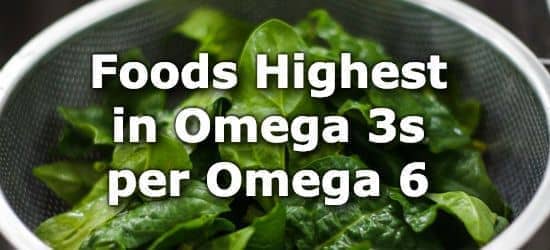 Next ➞
Next ➞
